Agriculture & Environment
CAES Presents 20 PhDs at the 74th Graduation Ceremony of Mak
Published
1 year agoon
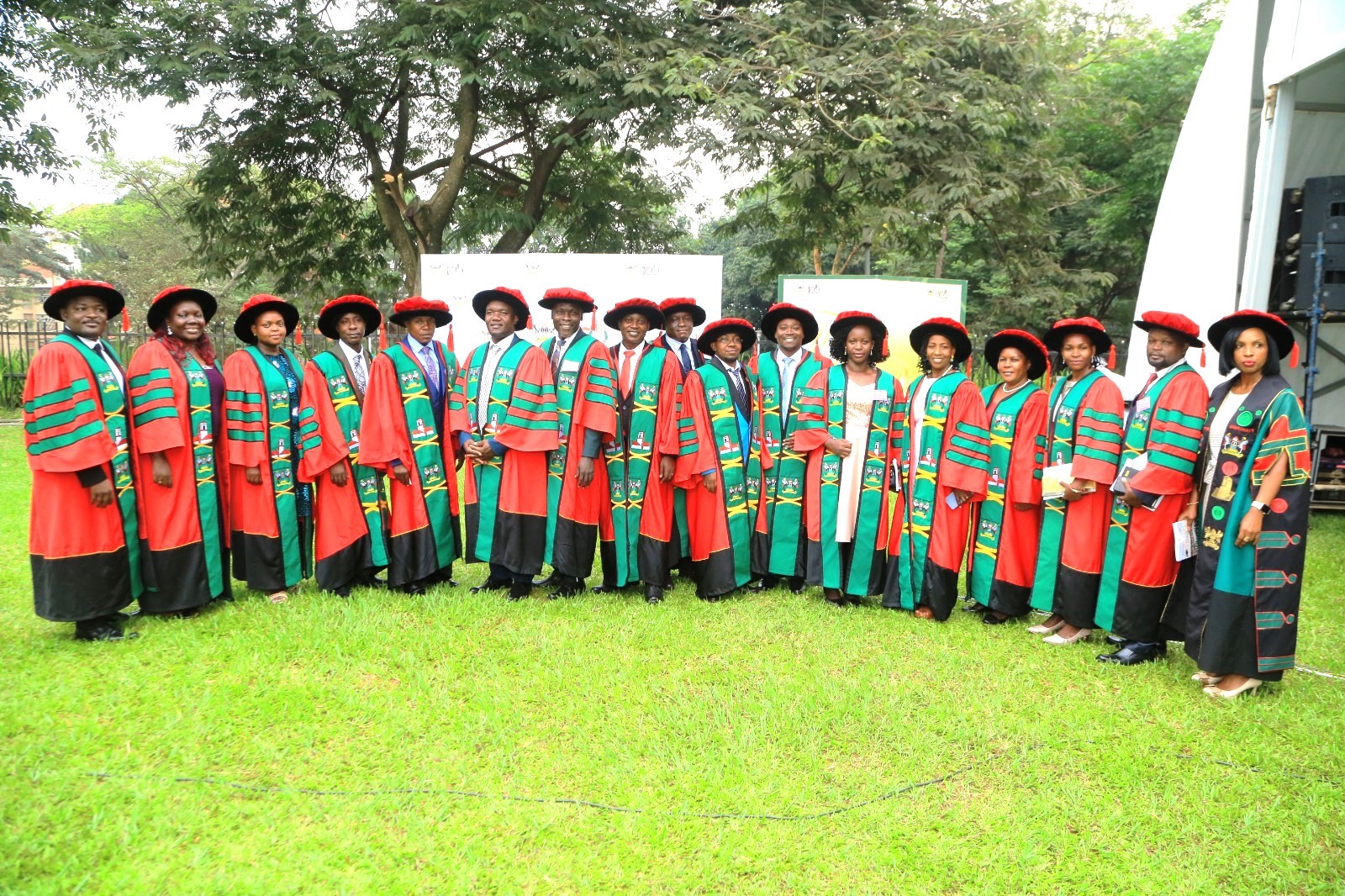
Graduation statistics
The College of Agricultural and Environmental Sciences (CAES) has presented 638 students for the award of degrees and diplomas at the 74th graduation ceremony of Makerere University. Of the 638 students, 20 have graduated with PhDs (7 female, 13 male), 104 with Masters degrees (49 female, 55 male), 3 with a Postgraduate diploma (all male), and 511 with Bachelor’s degrees (220 female, 291 male). During the course of the 74th graduation ceremony that commenced on Monday, 29th January 2024 and will end on 2nd February, a total of 12,913 graduands will receive degrees and diplomas of Makerere University. Of these, a total of 132 students will graduate with PhDs, 1,585 with Masters degrees, 11,016 with Bachelor’s degrees, 156 with postgraduate diplomas, and 24 with undergraduate diplomas. 53% of the graduands are female and 47% are male. In the category of PhD graduands, 46 are female and 86 are male. In the category of students graduating with Master’s degrees, 699 are female and 886 are male.
Vice Chancellor commends CAES research output
Addressing the congregation, the Acting Chancellor, also Vice Chancellor of Makerere University, Prof. Barnabas Nawangwe commended the College for the enormous research output that directly addresses national development challenges. “With the growing population, there is need to invest in food security. I commend CAES for the many projects aimed at addressing the challenge.” In 2023, the College through the Department of Agricultural Production trained and exposed 145 different categories of soybean stakeholders from Karamoja including District Agriculture officers, extension workers and local seed business holders to state-of-the-art seed and agronomic production practices and post-harvest handling techniques. Additionally, the College in collaboration with Development Initiative for Northern Uganda (DINU) disseminated over 55 metric tons of Soybean foundation seed to the districts of Kalenga, Kabong, Amudat, Nabilatuk, Napak and Nakapiripirit. The College is also responsible for the Soybean component in the current National Oil Seeds Project (NOSP) that is funded by IFAD and the Government of Uganda. This project has a hub in Karamoja operating in the districts of Napak, Nakapiripirit, Nabilatuk, Abim, Kabong.
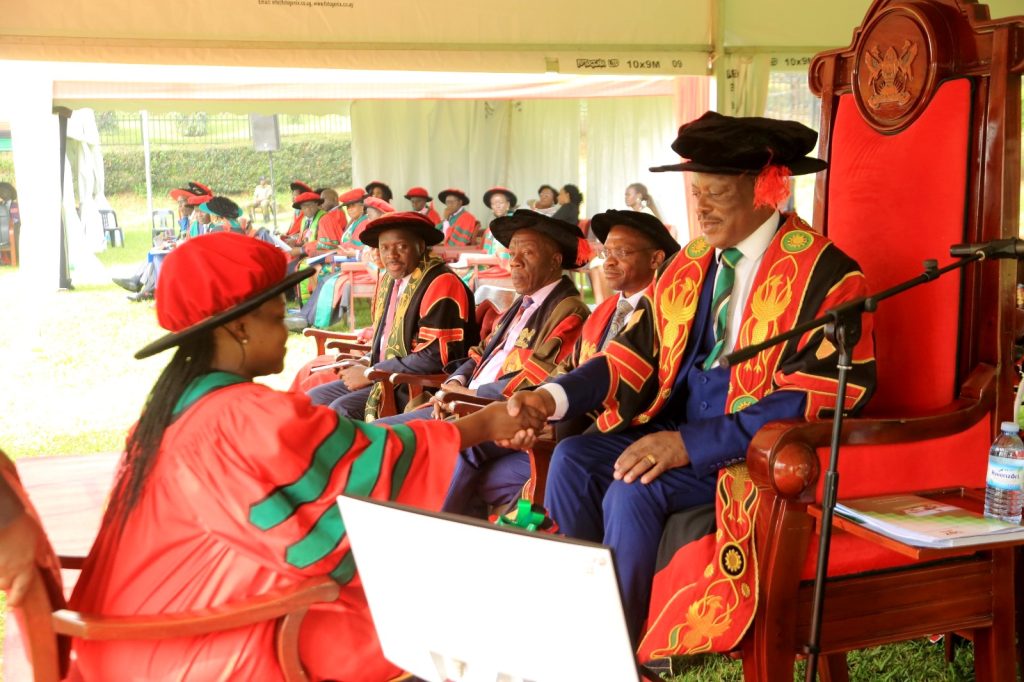
“It is also pleasing to note that the Makerere University Regional Centre for Crop Improvement (MaRCCI) under the College has been identified as a premium centre to train quality PhDs in Plant Breeding and Biotechnology and will now be known as an African Host Centre (AHU/C). This will support the production of quality seed adaptive to climate change,” the Vice Chancellor noted. MaRCCI, in collaboration with the Department of Agricultural Production at CAES, is charged with training quality PhD students from across Africa to address the human resource gap of highly qualified specialists in the fields of Plant Breeding and Biotechnology. The first cohort of Ten (10) scholars from Benin, Kenya, Mozambique, Nigeria, South Sudan and hosts Uganda have already commenced their study programs with RSIF funding. Later this year (2024), another group of 4 PhDs from Nigeria and Rwanda will join as cohort 2. This program expects to enroll at least 10 PhDs every year at Makerere University for the foreseeable future with full funding.
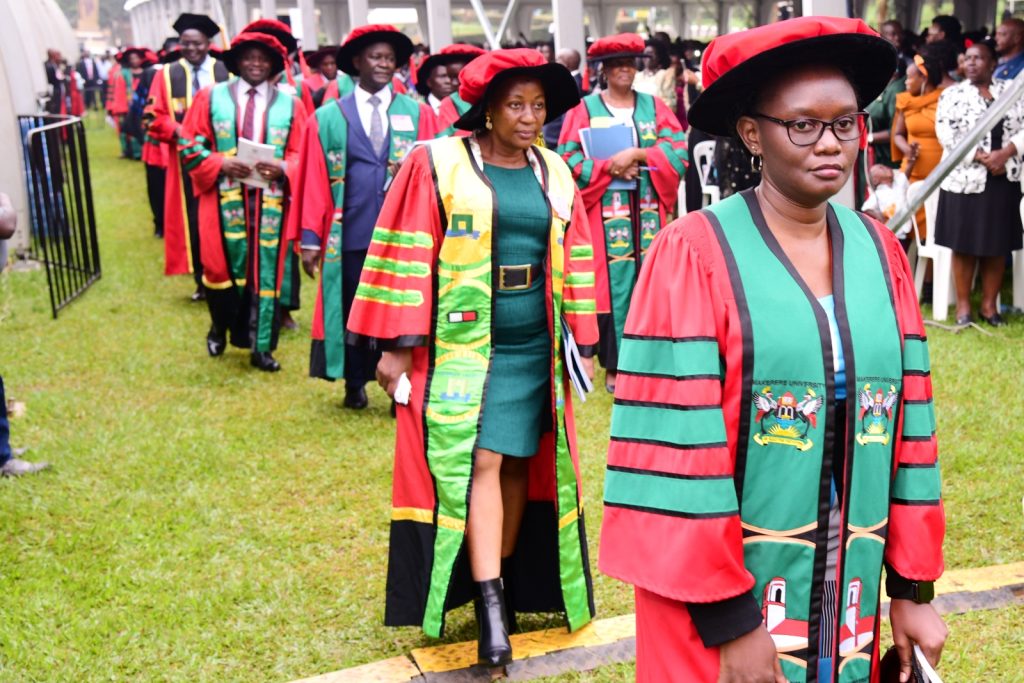
The Vice Chancellor also commended the College for developing a cutting-edge solar-powered cooking solution, MakSol Cooker that will revolutionize cooking practices while reducing carbon footprints in households. “The innovation will create positive impact on public health, and mitigate the environmental consequences of traditional cooking practices. We thank the Government of Uganda for supporting this initiative through the Makerere University Research and Innovations Fund (Mak-RIF).” He equally appreciated the College for a new project aimed at improving tea production and productivity in the country. Funded by the Danish Fellowship Centre under the Ministry of Foreign Affairs, Denmark, the Project, Nature-based Solutions for Climate-Resilient Tea Production in Uganda (NbS4Tea), is envisaged to sustainably bridge the tea yield gap in Uganda by developing research-based NbS for enhanced climate resilience of tea production systems. Through the project, the research team led by Dr Alex Nimusiima from the Department of Geography, Geo-Informatics and Climatic Sciences will identify and recommend climate resilient tea varieties, develop new methods and knowledge on locally available organic resources and NbS, innovate and deploy affordable irrigation technologies, empower vulnerable communities in tea production and processing, and identify export market strategies to substantially increase tea production and productivity in Uganda.
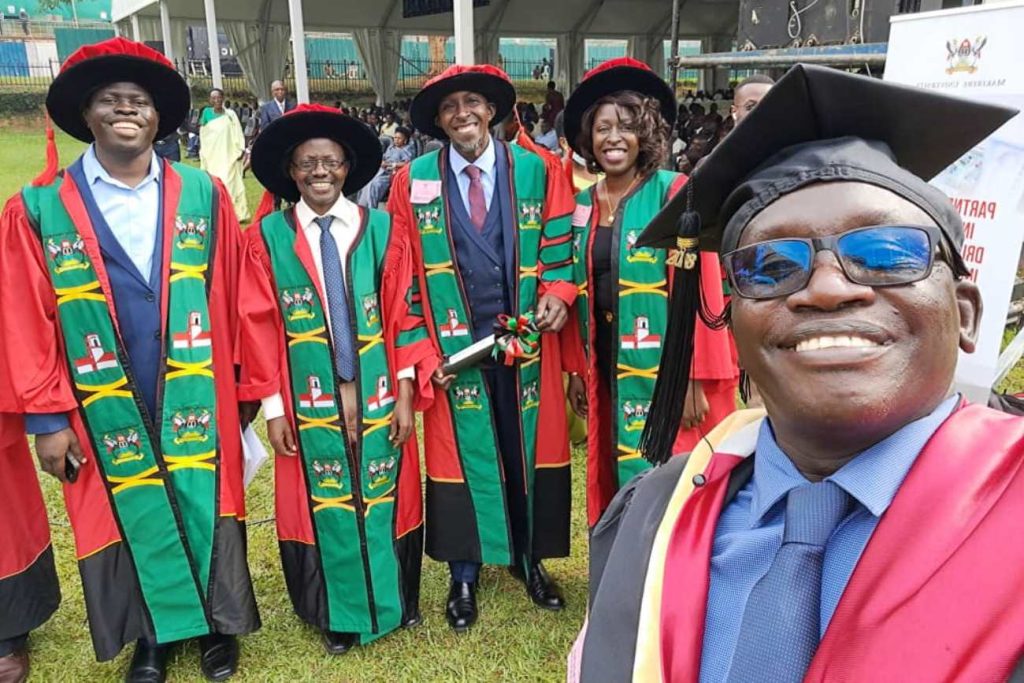
Status of research and innovations, and aspirations to transform Makerere into a research-led University
Presenting the status of research and innovations at Makerere, the Vice Chancellor noted that as a result of the various partnerships forged over time, the University’s research output in terms of innovations and publications had tremendously increased. On the aspirations to transform Makerere into a research-led University as stipulated in the 2020/2030 Strategic Plan, the Vice Chancellor explained that with funding from the Government of Uganda through the Mak-RIF, the University was supporting PhD research ideas that generate knowledge that addresses national development priorities. “Additionally, through the same fund, we are supporting the commercialization of projects that have demonstrated the potential for scaling up. These commercialization efforts have been complemented by our partners including the UNDP who have supported the establishment of state-of-the-art Innovation Pod, the first of 13 such pods to be established across Africa. The Pod will facilitate students to apply design thinking to solve societal problems and will offer collaborative working spaces to enable students create business ideas.”
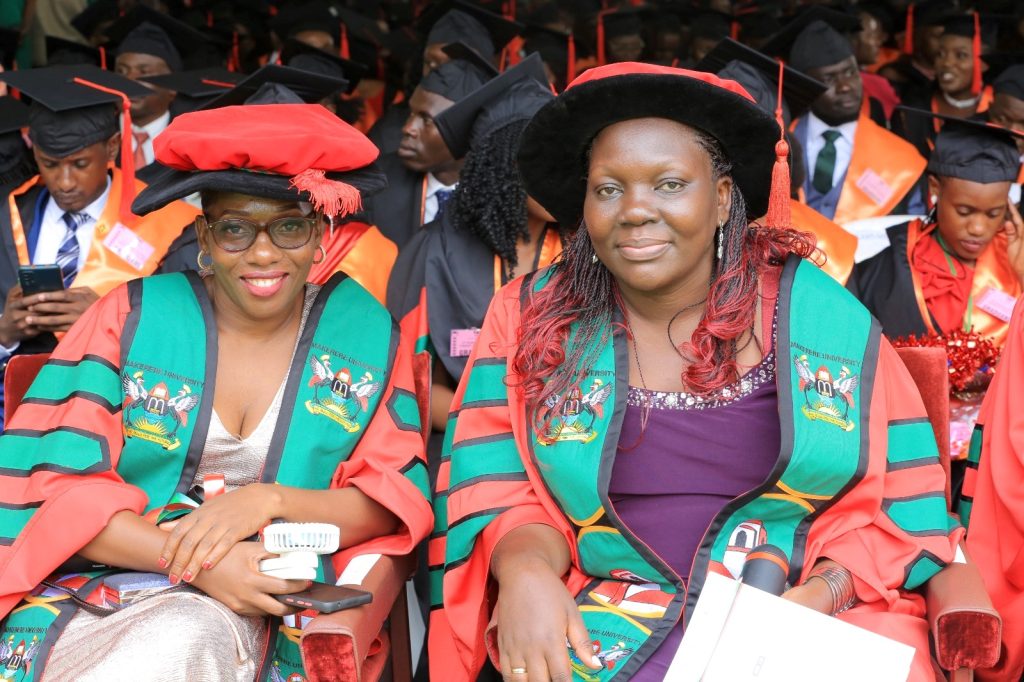
Vice Chancellor’s Research Excellence Award
Through his inaugural Makerere University Vice Chancellor’s Research Excellence Awards introduced this year with the aim of appreciating outstanding performers in research and publication, the Vice Chancellor presented plaques and certificates of recognition to the best five researchers from each of the 10 colleges. Based on the highest number of publications between the year 2017 and 2023 according to the Scopus database, Prof. Moses Robert Kamya and Prof. Rhoda Wanyenze from the College of Health Sciences emerged the best overall male and female researchers. Prof. Moses Robert Kamya has 271 publications and Prof. Rhoda Wanyenze has 153 publications in the aforementioned period. The recipients of the awards at CAES are; Prof. Nakimbugwe Dorothy, Prof. John H. Muyonga, Prof. Kaaya Natigo Archileo, and Prof. Mukisa Muzira Ivan from the Department of Food Technology and Nutrition, and Prof. Egeru Anthony from the School of Agricultural Sciences.
Appreciation to Government and other development partners
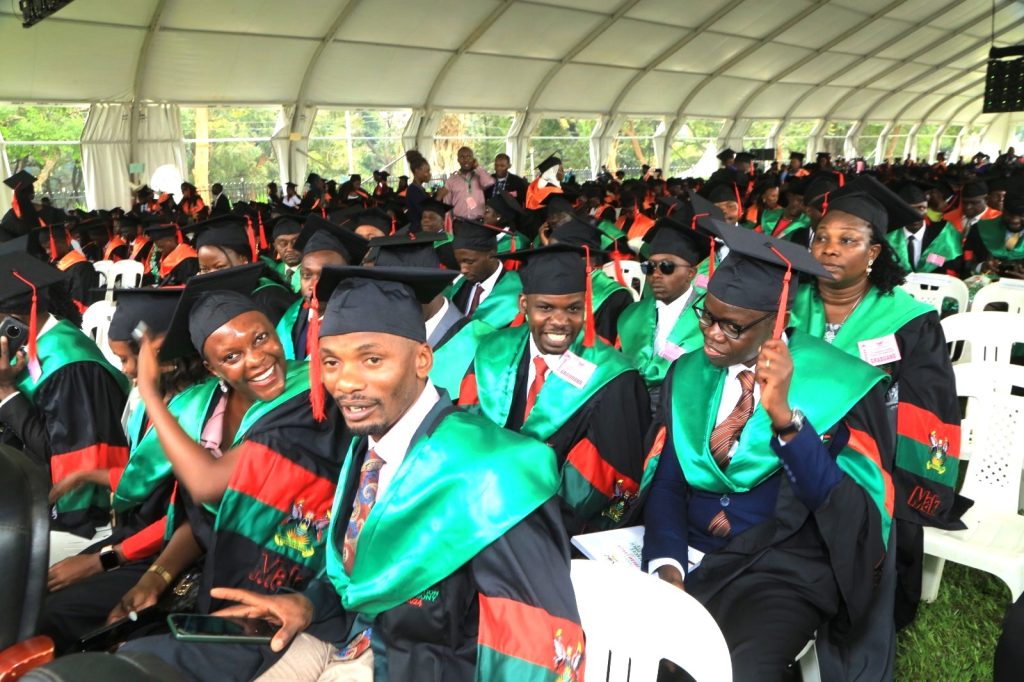
The Vice Chancellor appreciated the Government of Uganda for its continued support to Makerere University. “It would not be possible for v to realise all these achievements had it not been for the unwavering support of our Visitor, our Minister, Parliament and the entire Government. I wish to convey our appreciation to H.E. the President and the entire Government for the continued support to Makerere University, especially the support to staff welfare and the Research and Innovation Fund. We once again pledge our commitment to serving our country with maximum dedication through training of highly skilled human resource, research for development and support to Government programmes including the Parish Development Model and measures aimed at achieving the Sustainable Development Goals.” He also appreciated all stakeholders who are providing scholarships to enable bright, but economically disadvantaged students to attain education at Makerere and to support research and innovation. These include: Makerere University Council through the Female Scholarship Foundation, the Madhvani Foundation, the Government of Uganda through the Higher Education Students Financing Board, Sida of Sweden, the Embassy of China, the Chinese Chamber of Commerce, Government Ministries, State House, NORAD, Gerda Henkel Foundation, Mellon Foundation, USAID, NIH, Melinda and Bill Gates Foundation, Centre for Disease Control, ARUA, RUFORUM, IUCEA and many others.
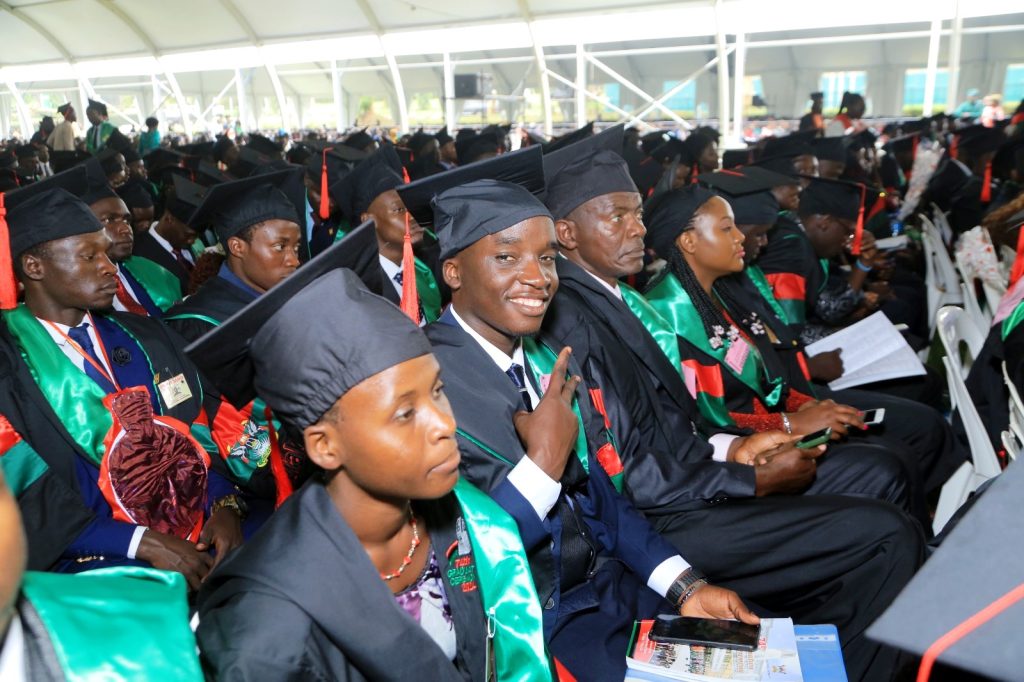
Makerere University Transcripts and Certificates
The Vice Chancellor noted that the University had come up with measures aimed at making the issuance of academic transcripts and certificates very fast and convenient by shortening the clearance process. “With the support of the University Council and Senate, the Department of the Academic Registrar, the Directorate of ICT Support Services, and the leadership at the Colleges, the academic transcripts for students graduating during the 74th graduation ceremony were printed before graduation. The academic transcripts are ready and they are due for issuance to graduands who have satisfied the academic and financial obligations. I therefore urge all our graduands to pick their transcripts from their respective colleges at the end of this graduation ceremony.”
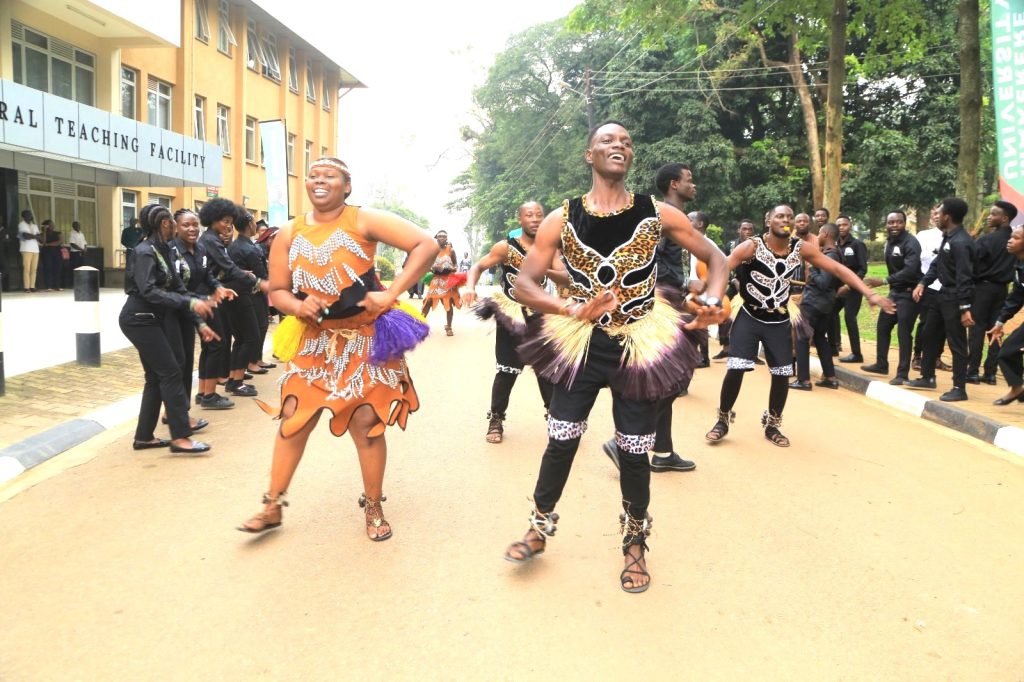
You may like
-
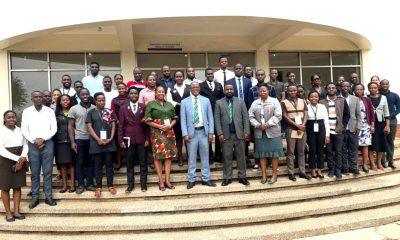

Mak Moves to Revitalize Food Technology & Business Incubation Centre to Drive Innovation & Entrepreneurship
-
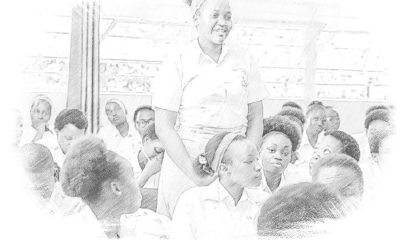

Ugandan Study Flags Girls and Senior Students as a Mental Health High-Risk Group
-
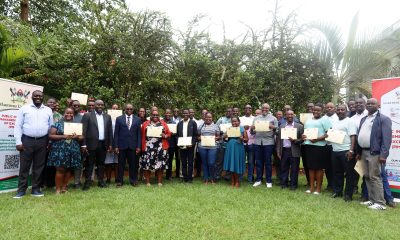

Makerere’s PIM Centre Concludes Training on Certificate of Financial Implications (CFI)
-


Call for Applications: Responsible Conduct of Research (RCR) Training Course
-
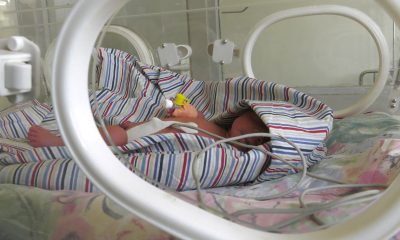

Call For Applications: PhD Fellowship Training Position
-
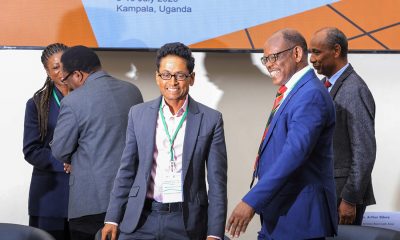

Makerere Hailed for Its Leadership in Health Policy and Knowledge Systems
Agriculture & Environment
Mak Moves to Revitalize Food Technology & Business Incubation Centre to Drive Innovation & Entrepreneurship
Published
1 day agoon
July 14, 2025By
Mak Editor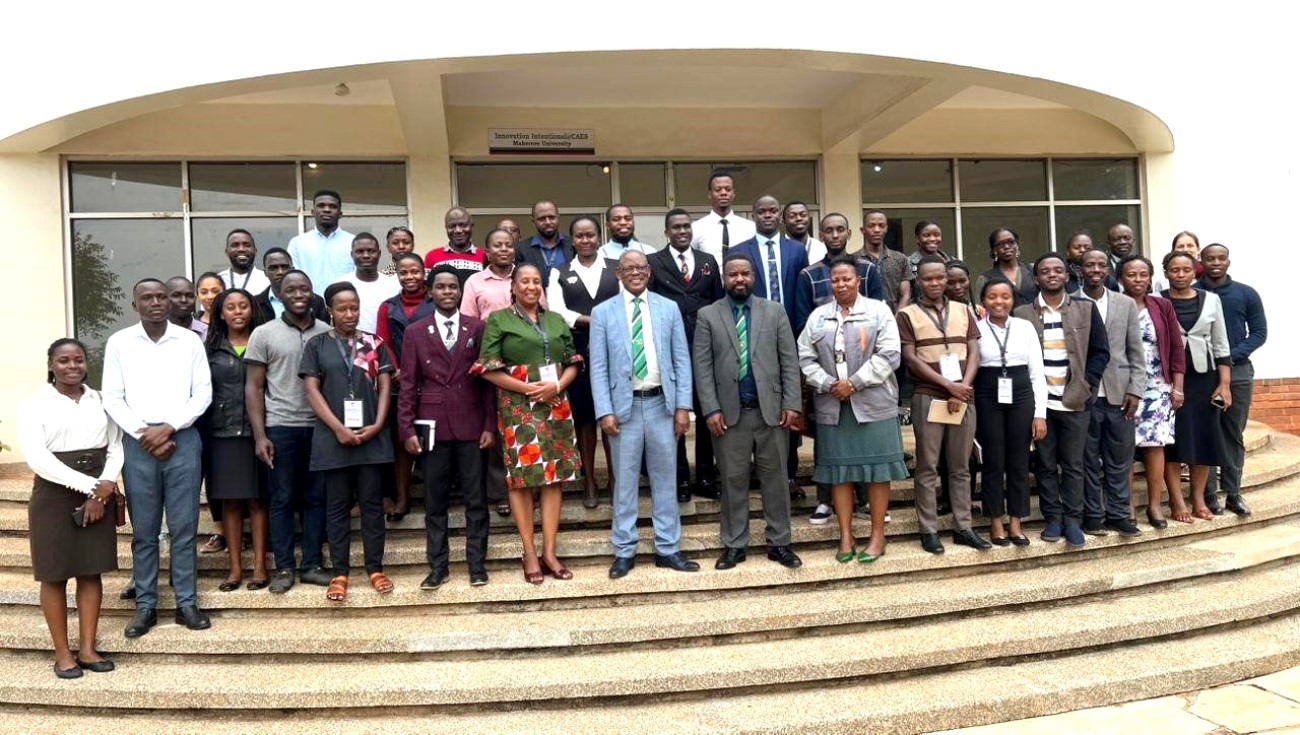
By Ssembogga Derrick
Makerere University marked a significant milestone on Thursday, 10th July 2025, with the launch of the revitalization programme for the Food Technology and Business Incubation Centre (FTBIC). This initiative is poised to position the FTBIC as a national hub for food innovation, student enterprise development, and agro-industrial transformation.
Hosted under the School of Food Technology, Nutrition and Bioengineering (SFTNB) at the College of the Agricultural and Environmental Sciences (CAES), the revitalization of the FTBIC is intended to bridge the gap between academia and industry. “We aim to achieve this by supporting food-based start-ups, enhancing graduate entrepreneurship, and promoting the commercialization of research,” Dr Julia Kigozi, Dean, SFTNB explained. The project receives critical funding from the Makerere University Research and Innovations Fund (MakRIF), which consistently supports innovation and research-based development at the university.
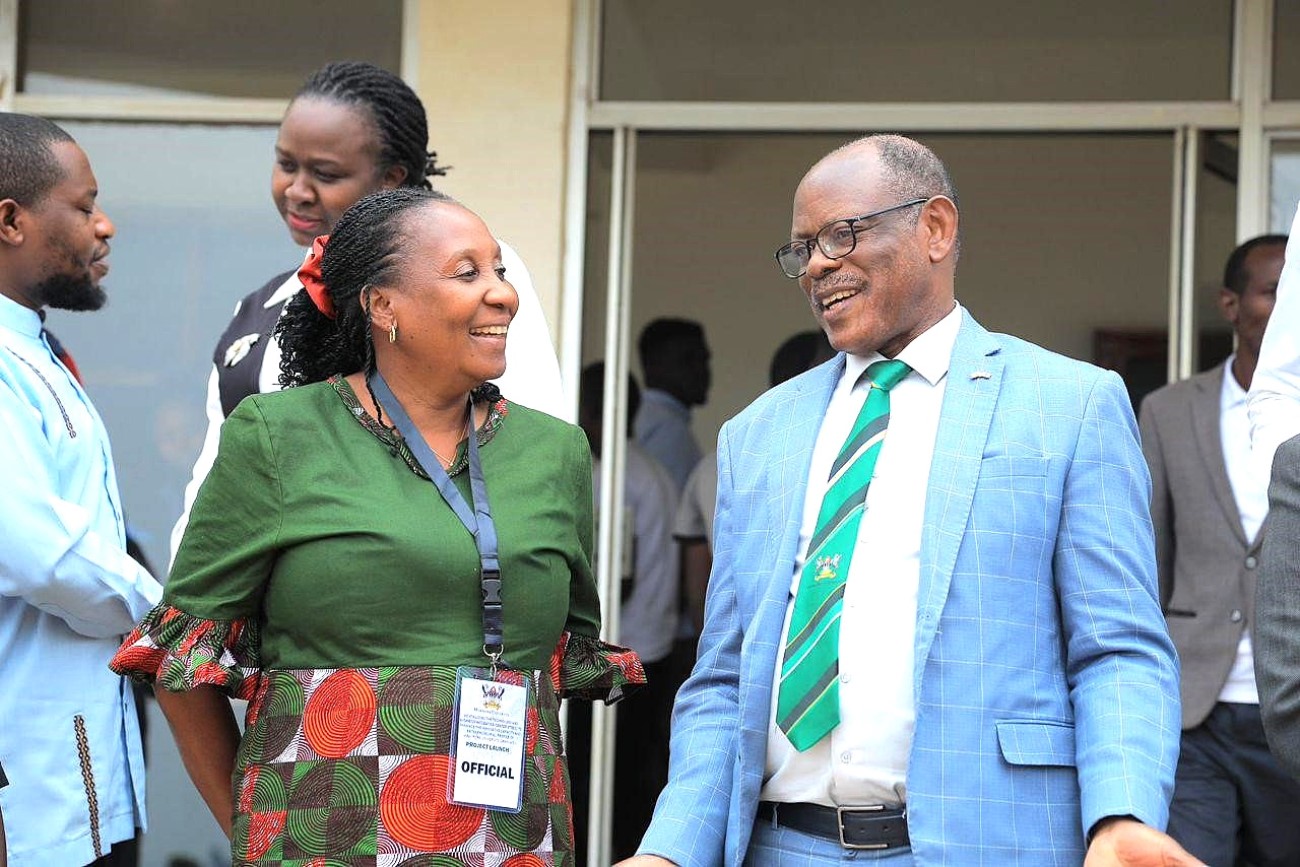
Unveiling a New Strategic Vision
The event, held under the theme “Revitalizing FTBIC to Unlock Innovation and Entrepreneurship Potential among Makerere University Graduates”, marked the official launch of the Centre’s revitalization programme to key stakeholders. It featured the presentation of FTBIC’s new strategic vision and direction, highlighting the commitment of the institution and its partners to fostering graduate entrepreneurship and innovation in food systems. The event also aimed to raise awareness of the Centre’s crucial role in supporting industry, research, and national development.
Participation of stakeholders
The launch attracted a vibrant and diverse audience of over 50 participants. Among the attendees were student representatives; partners from other incubation centers both within and outside Makerere University, including MIIC, UNIPOD, and DGI; as well as representatives from national innovation stakeholders such as Uganda Industrial Research Institute (UIRI) and StartHub Africa.
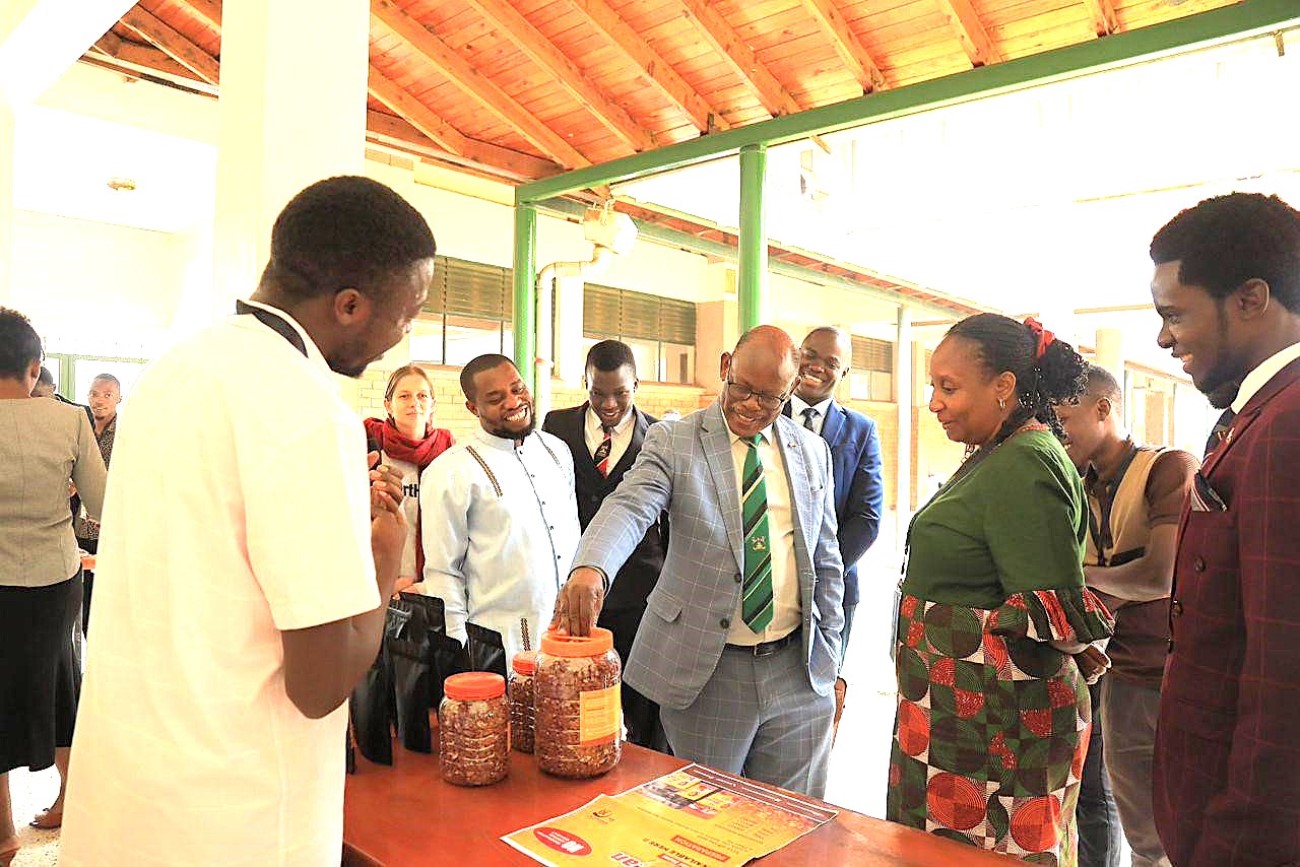
Most notably, the event was honored by the presence of the Vice Chancellor of Makerere University Prof. Barnabas Nawangwe. The Vice Chancellor commended the revitalization efforts, acknowledging the Centre’s immense potential to incubate hundreds of food-based start-ups and create employment opportunities for thousands of graduates. “The Centre is now well-positioned to become a flagship platform for innovation, employment creation, and agro-industrial development in Uganda and beyond. Makerere University remains committed to supporting such initiatives that align with national priorities and global development goals.”
The event featured the unveiling of the operational framework for the revitalized Centre, highlighting its commitment to innovation, entrepreneurship, and practical graduate training. Stakeholders in attendance expressed enthusiasm and pledged support for future collaboration, research, and product development initiatives aligned with national development priorities. The event also provided a platform to deepen partnerships with private sector actors and development organizations, reinforcing confidence in the Centre’s potential to serve as a national model for university-led incubation.
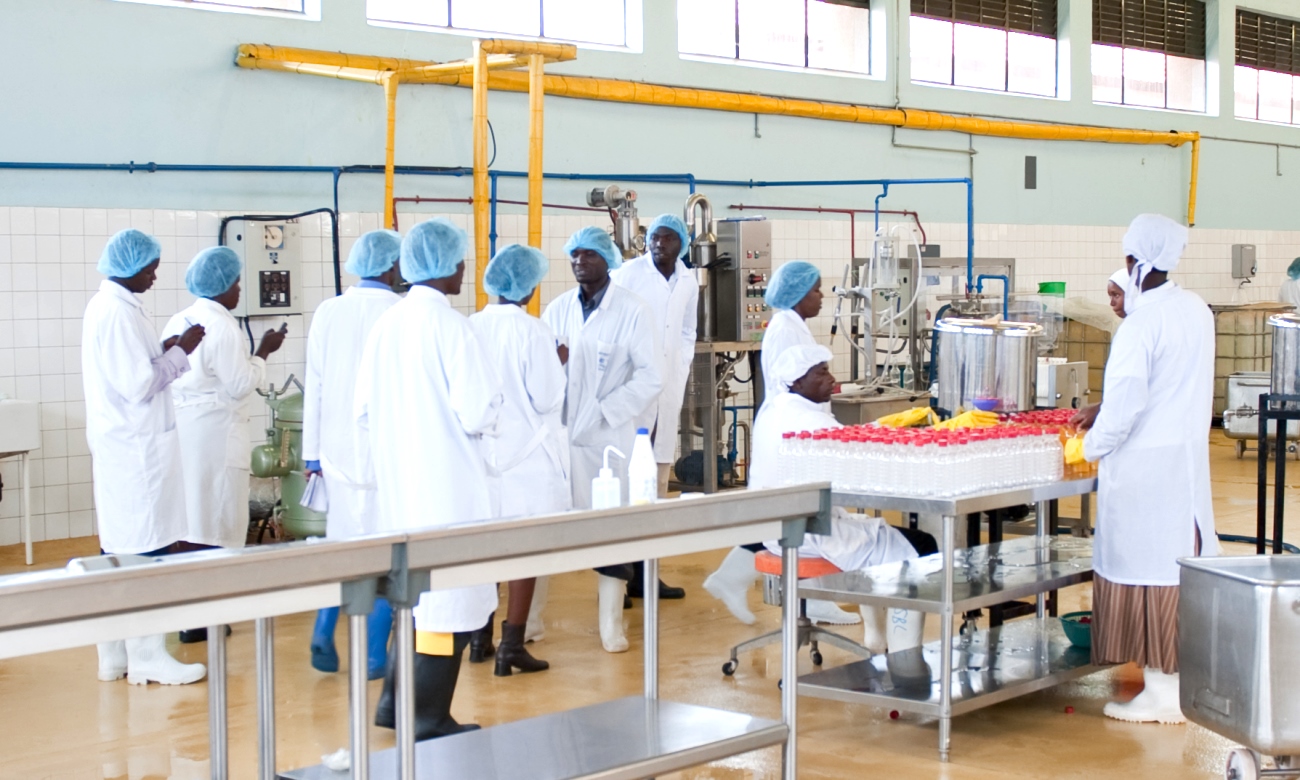
Agriculture & Environment
SophiA Project Upgrades Medical Infrastructure at Buvuma Health Centre IV, Trains Technicians for Maintenance Works
Published
6 days agoon
July 9, 2025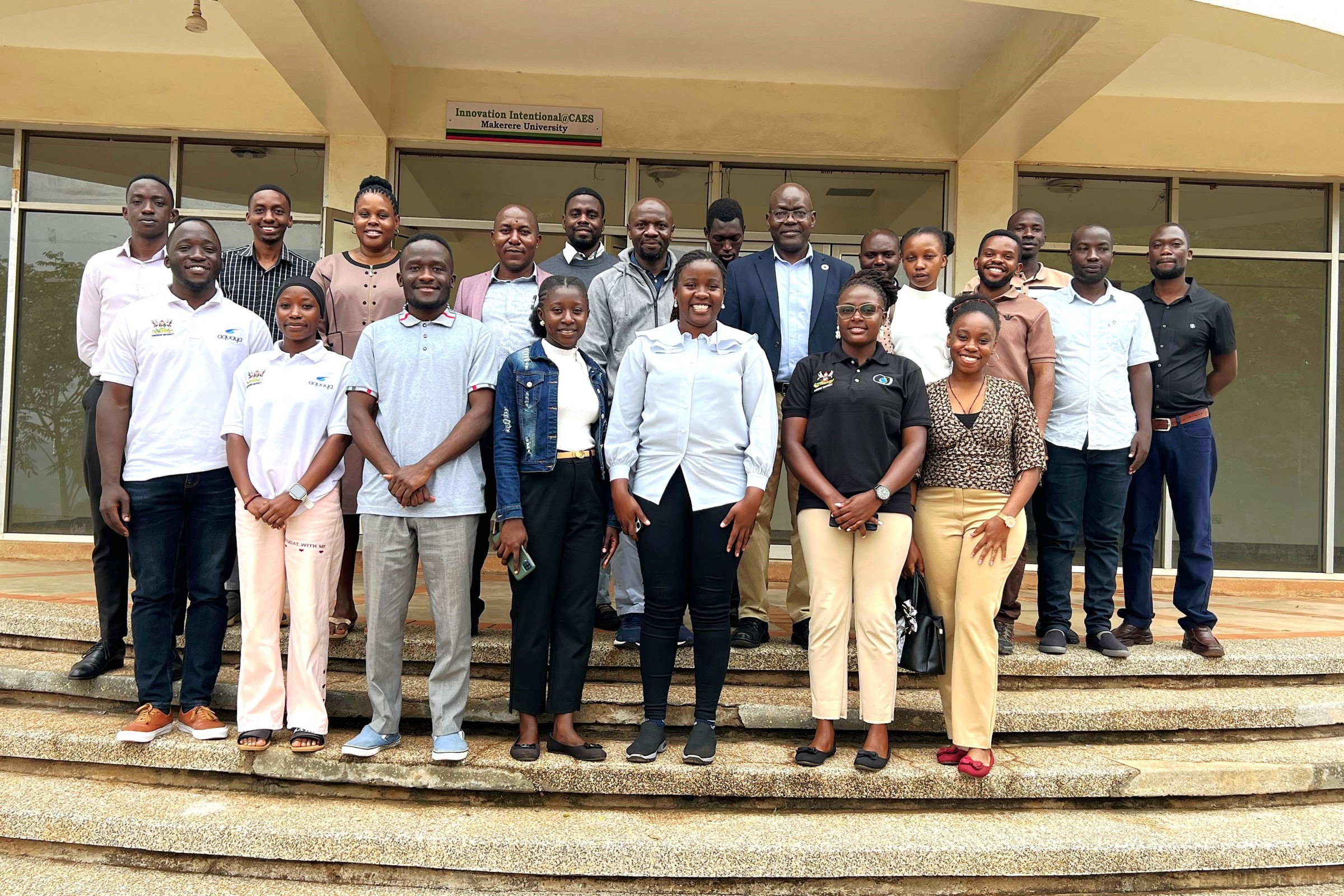
Overview of the Sustainable Off-Grid Solutions for Pharmacies and Hospitals in Africa (SophiA) Project
Despite ongoing urbanization across Africa, the majority of the population still resides in rural and remote areas, where infrastructure development remains limited. These regions face significant challenges such as lack of access to healthcare, education, clean water, and reliable electricity, contributing to higher rates of illness and poverty compared to urban centres. According to reports, Sub-Saharan Africa has approximately 120,000 public health facilities (22,000 hospitals and 98,000 health posts), of which around 26% lack any electricity access, and only 28% have reliable power supply.
Access to good healthcare is critical for sustainable development. However, many rural medical centres operate under harsh conditions – using polluted water, lacking cooling for medicines, and facing poor sanitation – largely due to unreliable electricity and water supply. Although half of the population in Sub-Saharan Africa lacks electricity, the region has abundant renewable energy potential that can be effectively harnessed through off-grid solar photovoltaic (PV) systems.
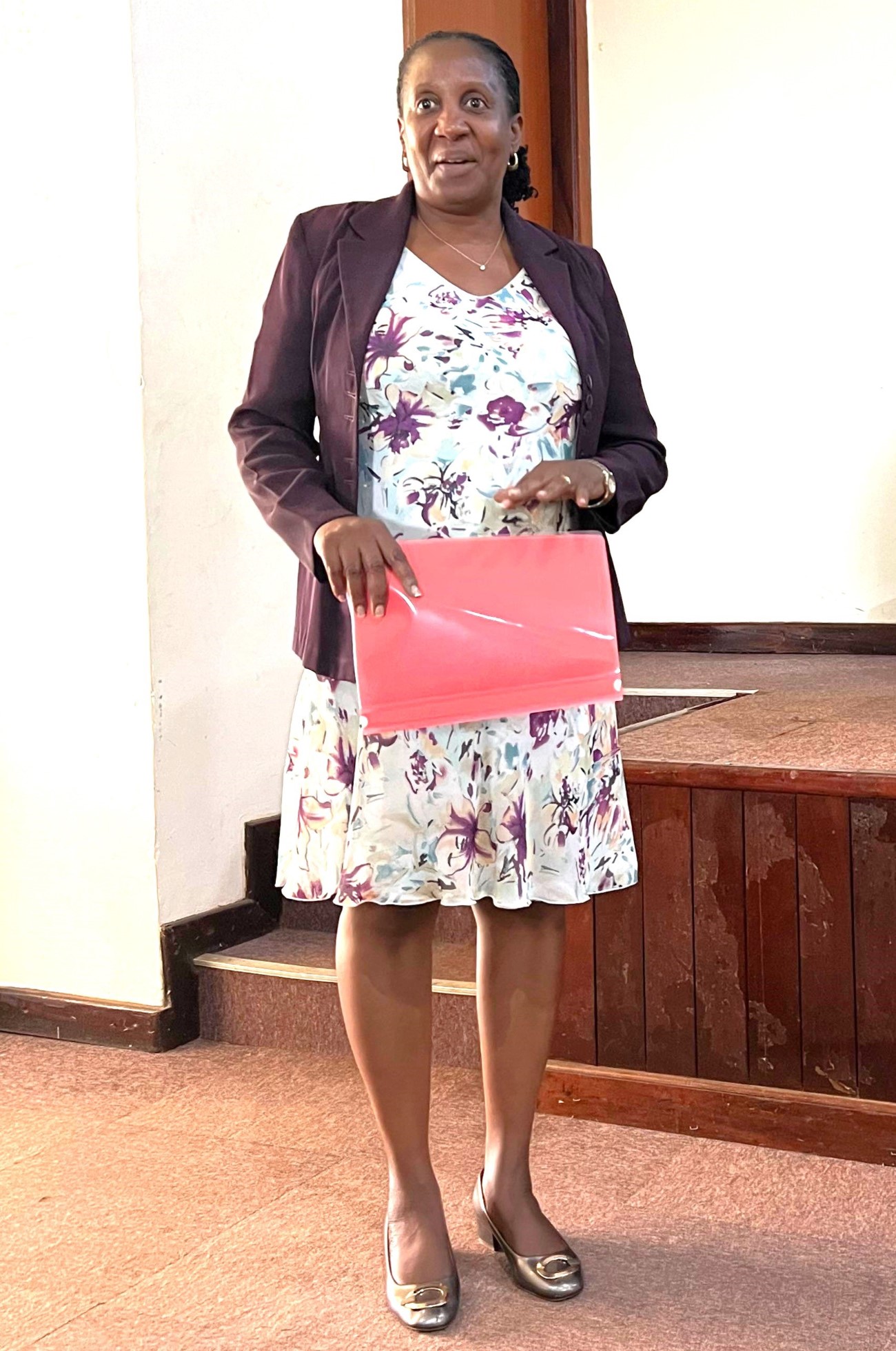
To address the above-mentioned challenges facing the African Continent, Makerere University in partnership with 13 organizations across Europe and Africa developed a project titled, “Sustainable Off-grid solutions for Pharmacies and Hospitals in Africa (SophiA)”. The five-year project that began on 1st October 2021 is funded by the European Union (Project: 101036836 – SophiA – H2020-LC-GD-2-3-2020). At Makerere University, the project is coordinated by Dr. Nicholas Kiggundu, Associate Professor in the Department of Agricultural and Biosystems Engineering, College of Agricultural and Environmental Sciences (CAES).
Piloted in Burkina Faso, Cameroon, Malawi, and Uganda, SophiA aims to provide sustainable off-grid energy solutions to rural and remote health facilities, fostering economic growth and ensuring equitable access to energy and healthcare. Using various technologies, such as photovoltaics, solar thermal, electrical and thermal storage, water treatment and natural refrigerants with low global warming potential, SophiA has developed and manufactured locally innovative, modular, affordable and efficient solar powered systems for providing:
- Safe and clean drinking water, free of bacteria and viruses, and deionised water for medical purposes;
- Hot water and steam production for thermal requirements of the hospitals;
- Cooling of medicines and food at +5°C;
- Low temperature storage of blood plasma and vaccines at -30°C;
- Ultra-low temperature storage of sensitive medication (e.g. some Covid-19 or Ebola vaccines) at -70°C.
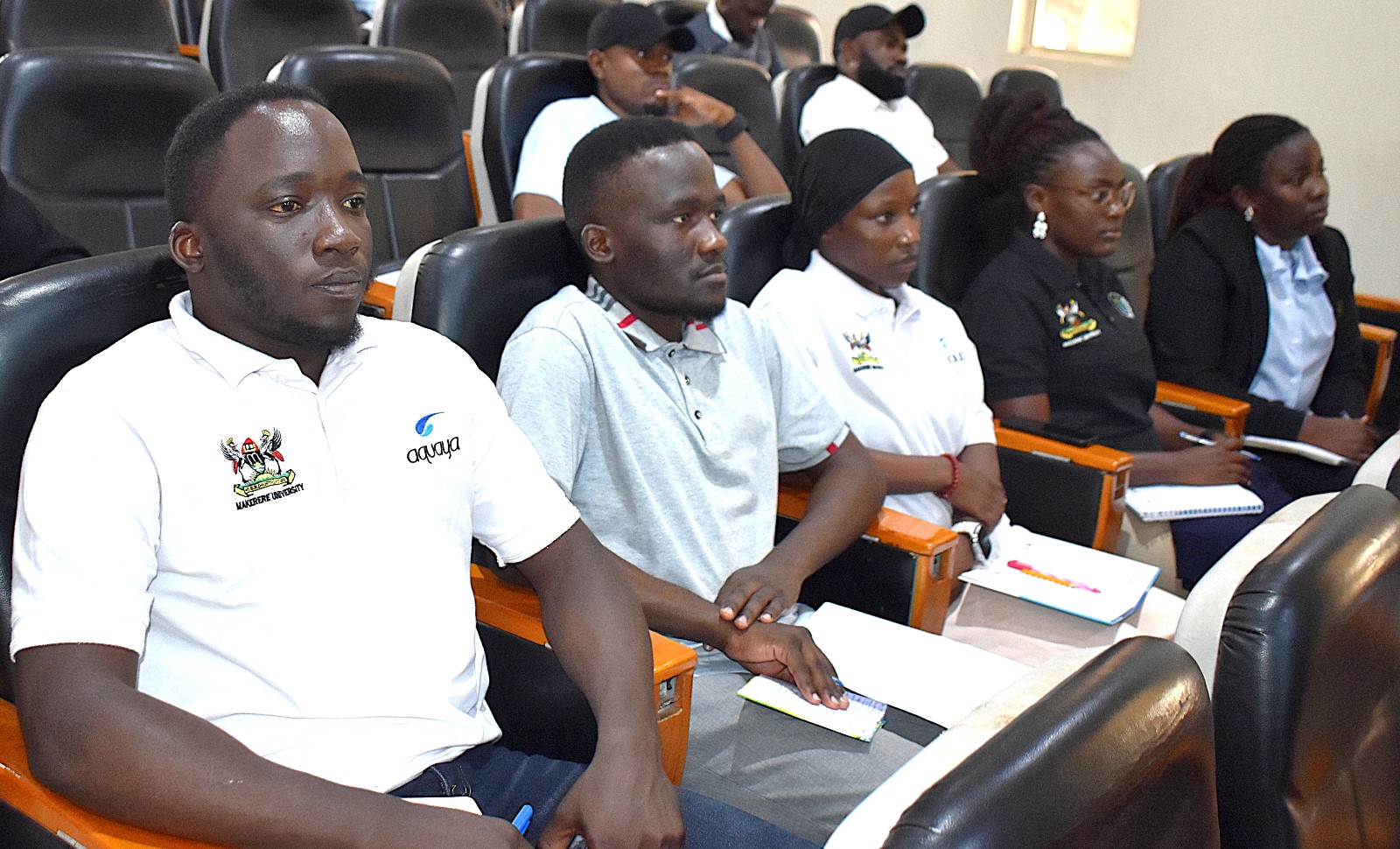
In addition, PV MedPort, a simple and 100% solar-powered solution has been developed and tested as a mobile health care station in small remote areas in 4 different geographical conditions in Africa. The SophiA system has been manufactured in Africa and will provide, for the first-time, innovative solutions based on climate-friendly natural refrigerants to cover cooling demand for three different temperature ranges (-70°C, -30°C and +5°C). The system has been tested and demonstrated at four rural hospitals in remote regions throughout the African continent covering the major geographical regions and different climatic conditions in Burkina Faso, Cameroon, Malawi and Uganda.
SophiA Project initiatives in Uganda
In Uganda, all Health Centre IV hospitals with surgical theatres have been connected to the national grid except Buvuma Health Centre IV, which serves over 120,000 people scattered across 52 islands. Recognizing this gap, the Ministry of Health selected Buvuma Health Centre IV for the SophiA project to demonstrate sustainable off-grid solutions.
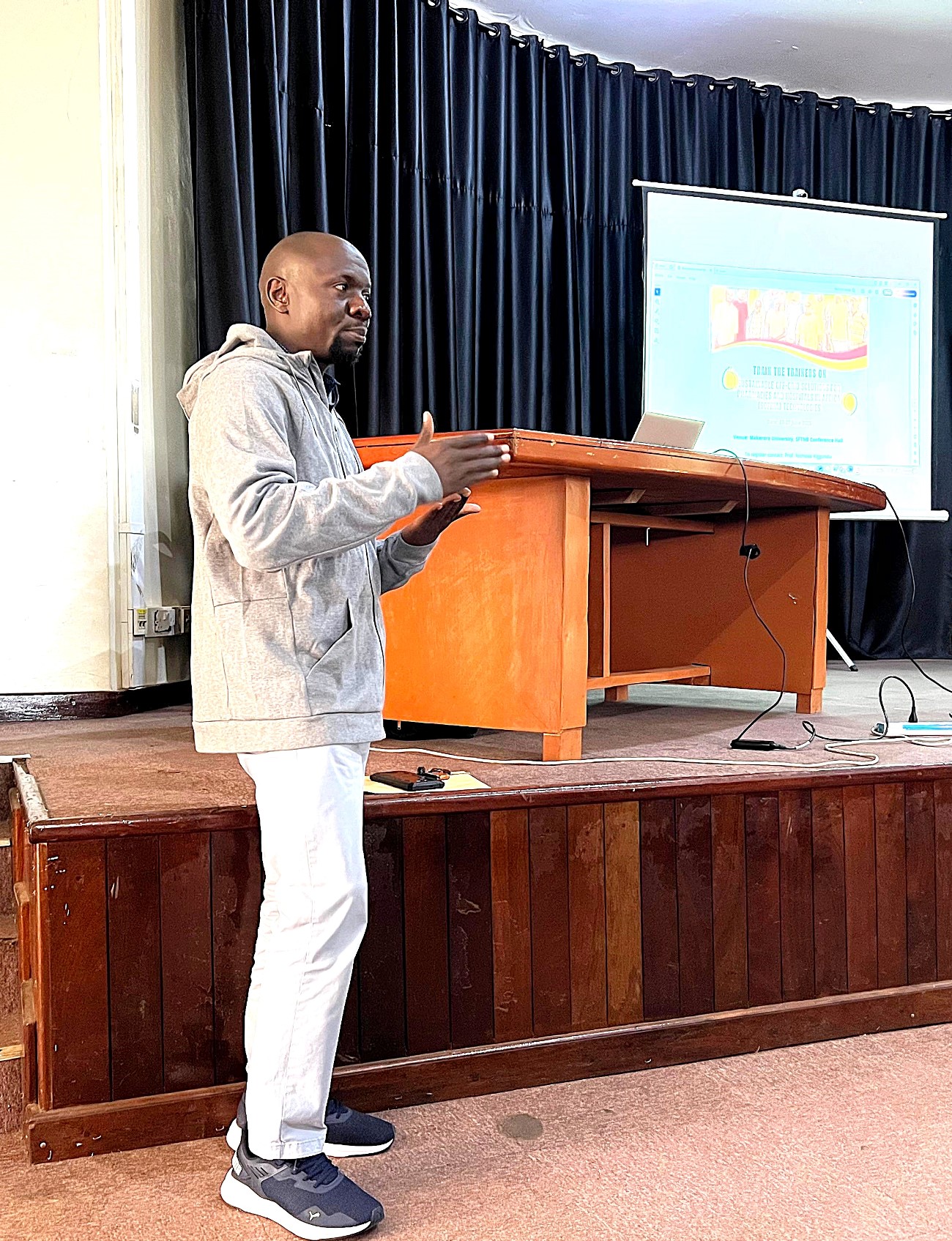
The SophiA System at Buvuma Health Centre IV provides the following services:
- Off-grid electricity supply
- Safe, clean drinking water for patients, staff, and the community
- Hot water and steam systems crucial for maternal care
- Solar-powered cooking and meal preparation
- Cooling systems for surgery and intensive care units
- Refrigeration for medicines at +5°C, blood plasma storage at -30°C, and ultra-low temperature storage (-70°C) for sensitive vaccines such as those for COVID-19 and Ebola
Training of Trainers Workshop
As the SophiA project approaches completion in September 2025, it is vital to establish a skilled pool of technicians capable of handling maintenance and minor repairs of the system components, including solar panels, water treatment units, generators, batteries, and cooking kits.
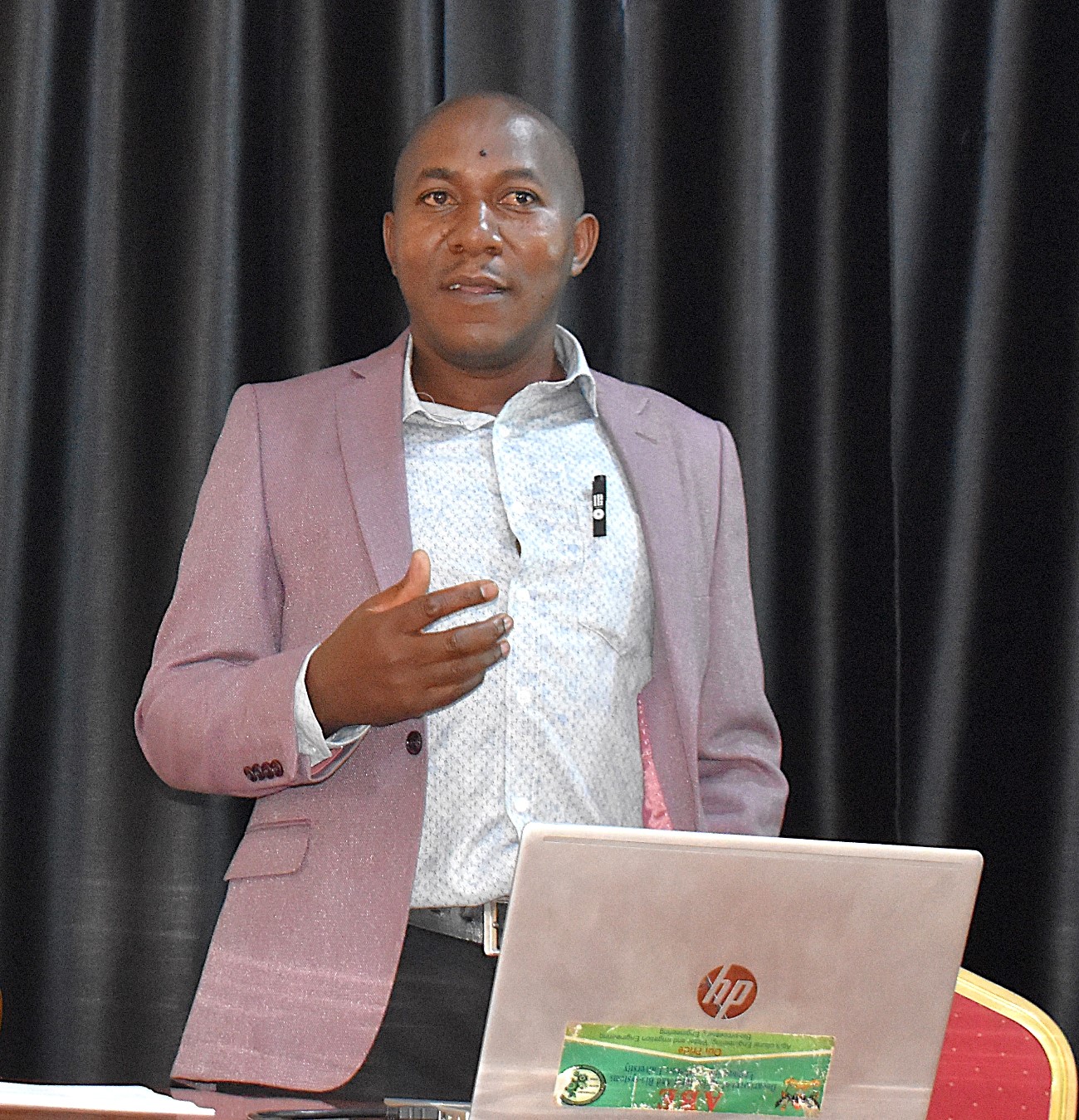
From June 23 to 27, 2025, Makerere University hosted a comprehensive Training of Trainers workshop. The training programme encompassed a diverse range of topics delivered by subject matter experts from institutions, including Makerere University (Department of Agricultural and Biosystems Engineering – CAES, and the College of Engineering, Design, Art and Technology – CEDAT), Hochschule University of Applied Sciences, and Busitema University. Participants were carefully selected from diverse professional backgrounds, including recent engineering graduates from CAES and CEDAT, Makerere University, University technical staff, personnel from Kyambogo University, officials from Buvuma District Works and Health Departments, and electricians from Kampala City. The training sessions were conducted at Makerere University and Buvuma Health Centre IV Hospital.
Training Modules Included:
- Sustainable energy systems and their practical applications
- Energy generation and storage technologies
- Solar water heating: design, operation, maintenance, and performance optimization of solar water heaters, crop dryers, and concentrating solar heaters
- Solar PV technologies in Uganda: cell technology, system design, operations, maintenance, and hands-on practicals for standalone and grid-connected systems
- Public health implications of water quality
- Water treatment and quality management, including protocols, parameters, and case study on the MCDI treatment system
- Water quality testing methodologies
- Introduction to sustainable refrigeration and cooling technologies
- Environmental impact and safety considerations for refrigerants
- Refrigeration cycles and component overview
- Life cycle assessment of SophiA technologies
- Thermal energy storage within the SophiA system
- Steam as a productive energy source
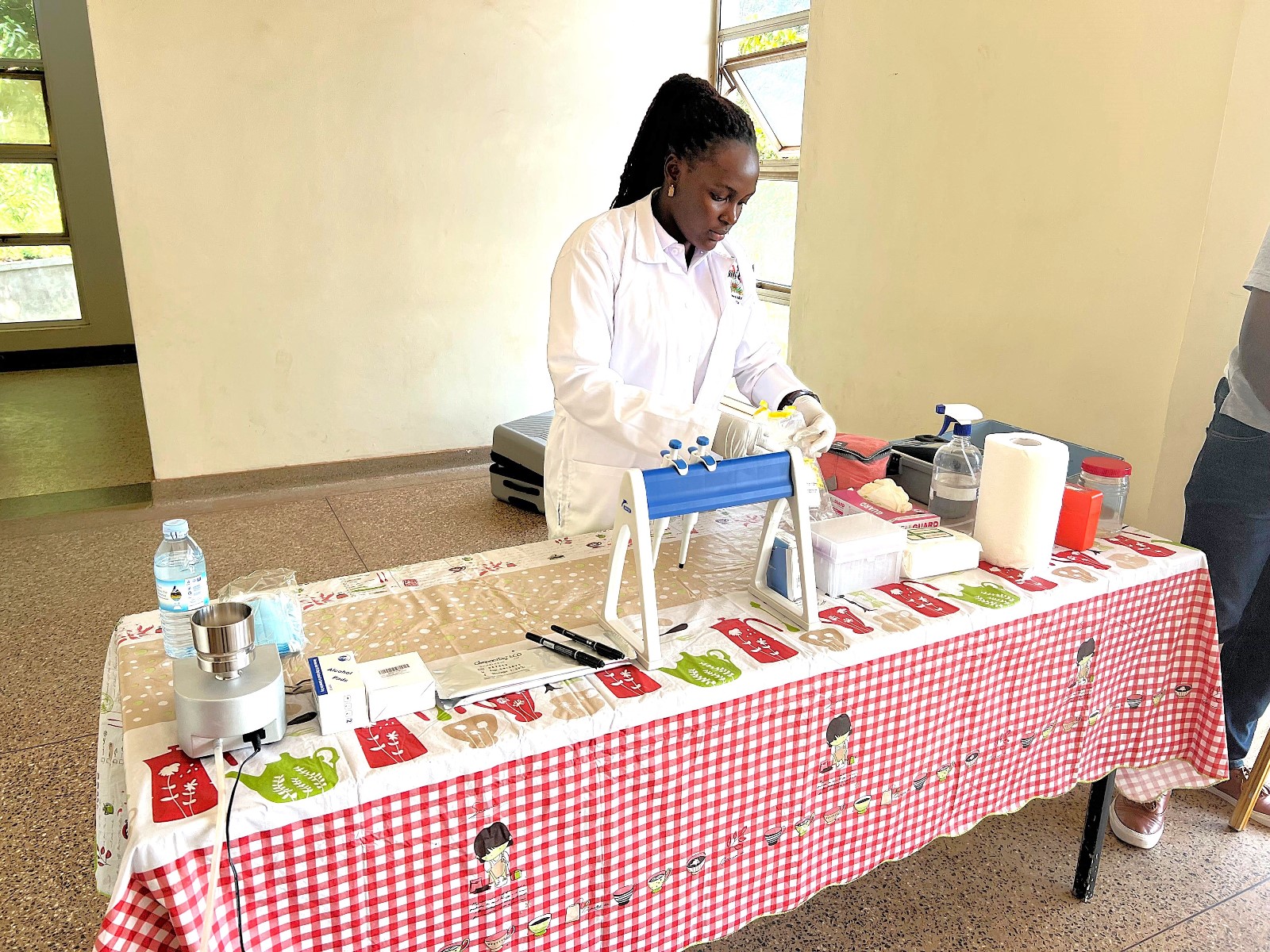
The Training Sessions
Day One: Introduction to foundational concepts in solar energy technologies
The first day of the SophiA Train the Trainers Workshop focused on building foundational knowledge in sustainable and solar energy systems. Led by Dr. Peter Tumutegyereize and Dr. Francis Mujjuni, participants explored a range of technologies and applications critical to clean energy deployment.
Key topics included:
Sustainable Energy Systems: Introduction to renewable energy systems including bioenergy, hydro, wind, geothermal, hydrogen fuel cells, and battery storage.
Solar Radiation & Geometry: Understanding solar constants, irradiance, and the impact of atmospheric conditions on solar performance.
Solar Thermal Technologies: Detailed look at solar water heating systems (FPCs and ETCs), maintenance, sizing, and solar dryers for agricultural and industrial use.
Photovoltaic (PV) Systems: Working principles, types of PV cells, performance factors, and diagnostics. Practical testing techniques and metrics like Voc, Isc, MPP, and PR were discussed.
Simulation & Application: Olivia Nakiwanuka demonstrated a PVsyst-based simulation of a 2.55 kWp standalone system for a conference hall, showing a high solar fraction (97.88%) and low LCOE (USD 0.03/kWh).
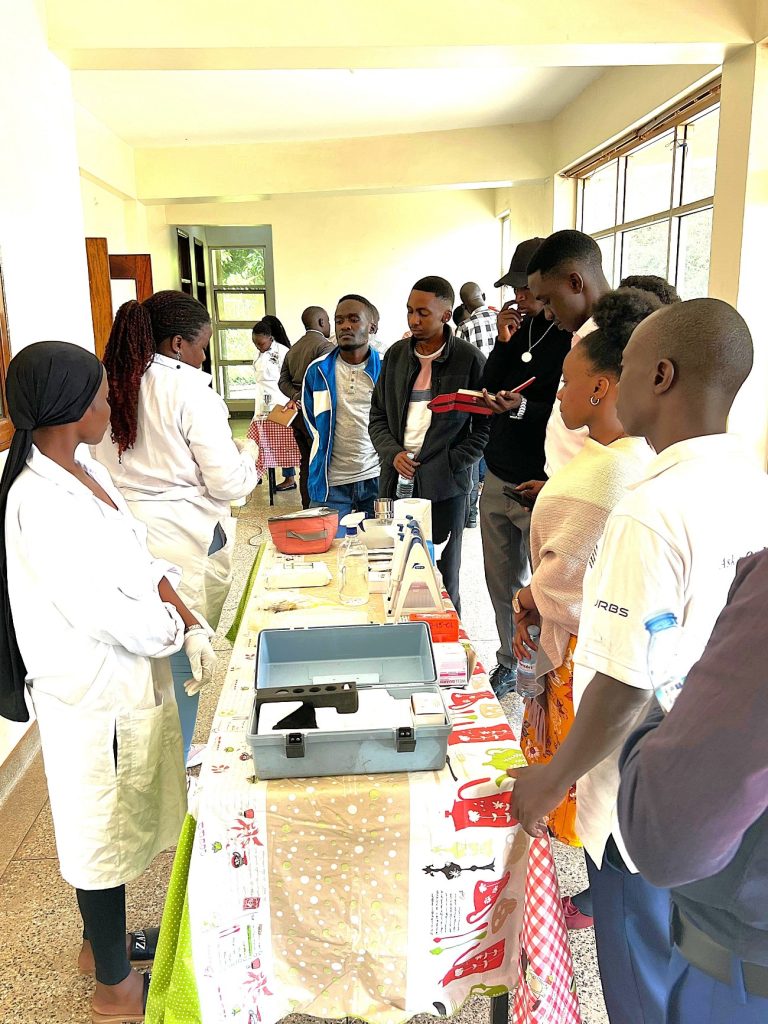
The sessions emphasized practical skills, performance analysis, and real-world application, equipping participants to train others and support solar adoption, especially in rural and off-grid settings.
Day Two: Water Treatment Technologies
The second day focused on water treatment technologies relevant to low-resource healthcare settings. Facilitated by Sneha De and Mr. Duc Dinh Ngoc from Hochschule Karlsruhe University, sessions covered technical, environmental, and operational challenges, with contributions from Dr. Joshua Wanyama on water quality management and Dr. Prossie Nakawuka on practical water testing.
Key challenges addressed included unreliable water supply and contamination in healthcare facilities, emphasizing the need for decentralized water treatment, especially in rural areas.
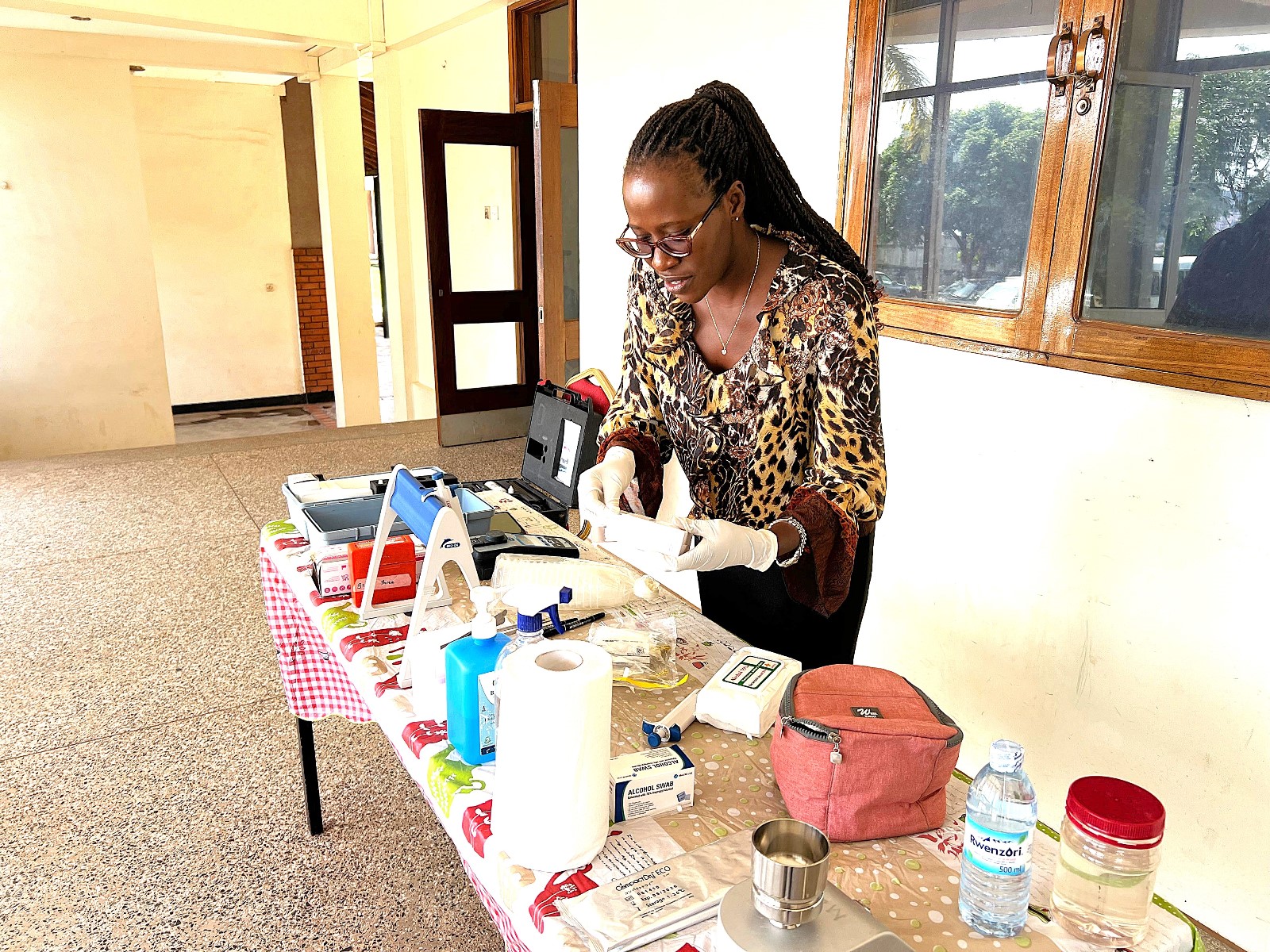
Sneha De reviewed biological and physical/chemical water treatment methods, highlighting technologies such as activated sludge, filtration, membrane bioreactors, and advanced disinfection techniques. The SophiA modular water treatment system, integrating ultrafiltration and membrane capacitive deionisation (MCDI), was introduced as a scalable solution for producing safe drinking and deionised water for medical use.
Mr. Duc Dinh Ngoc trained participants on the MCDI technology, an energy-efficient method for salt and fluoride removal suitable for low-salinity water.
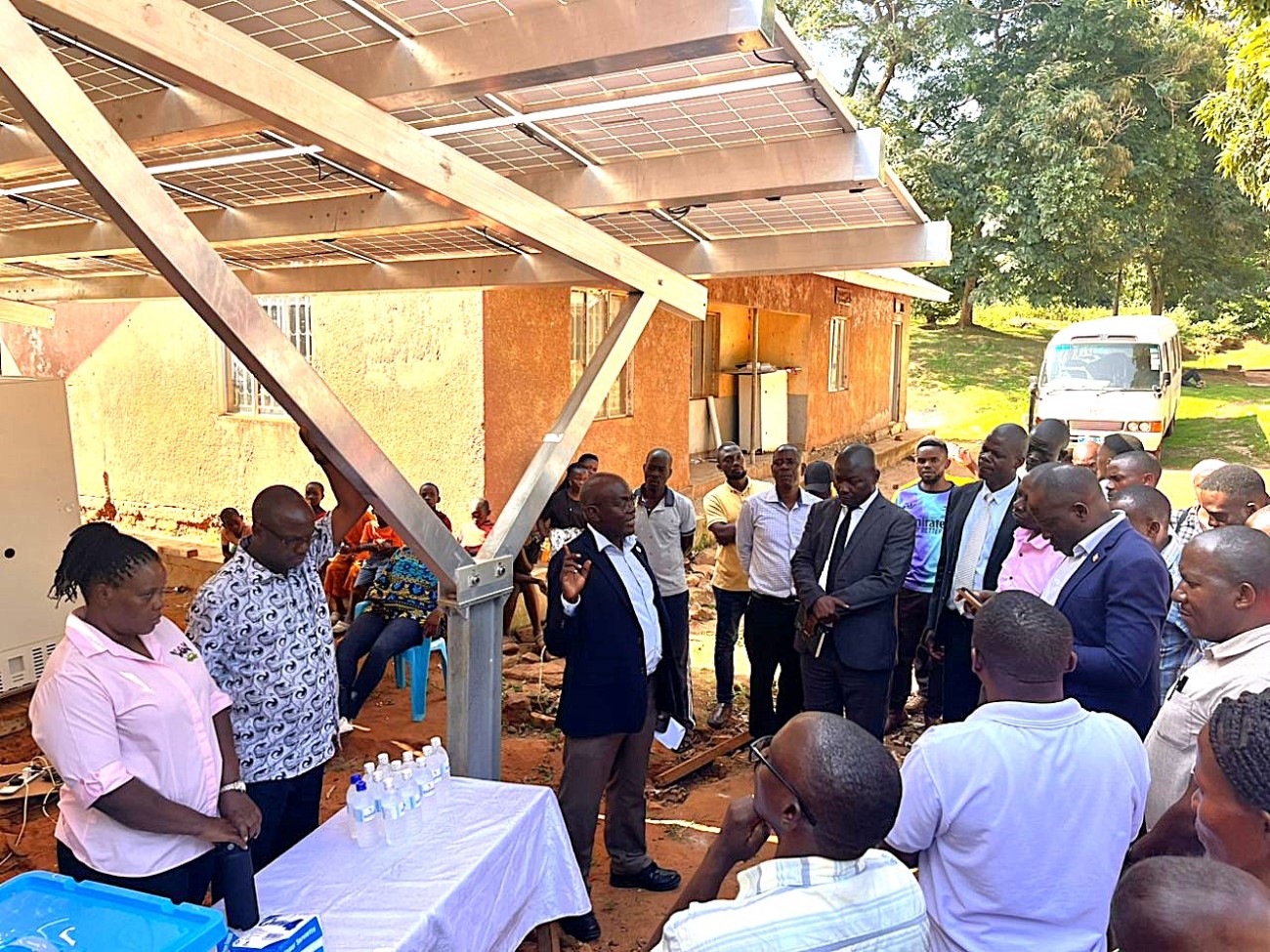
Dr. Joshua Wanyama discussed the water quality management protocols, outlining key physical, chemical, and biological water parameters and monitoring strategies, including modern IoT-based tools, to ensure water safety and public health.
The day concluded with a hands-on lab session by Dr. Prossie Nakawuka, where participants practiced water quality testing using turbidimeters, incubators, and filtration techniques.
Overall, Day Two combined theoretical insights, technology demonstrations, and practical skills, preparing participants to implement sustainable water treatment and quality management systems in healthcare environments.
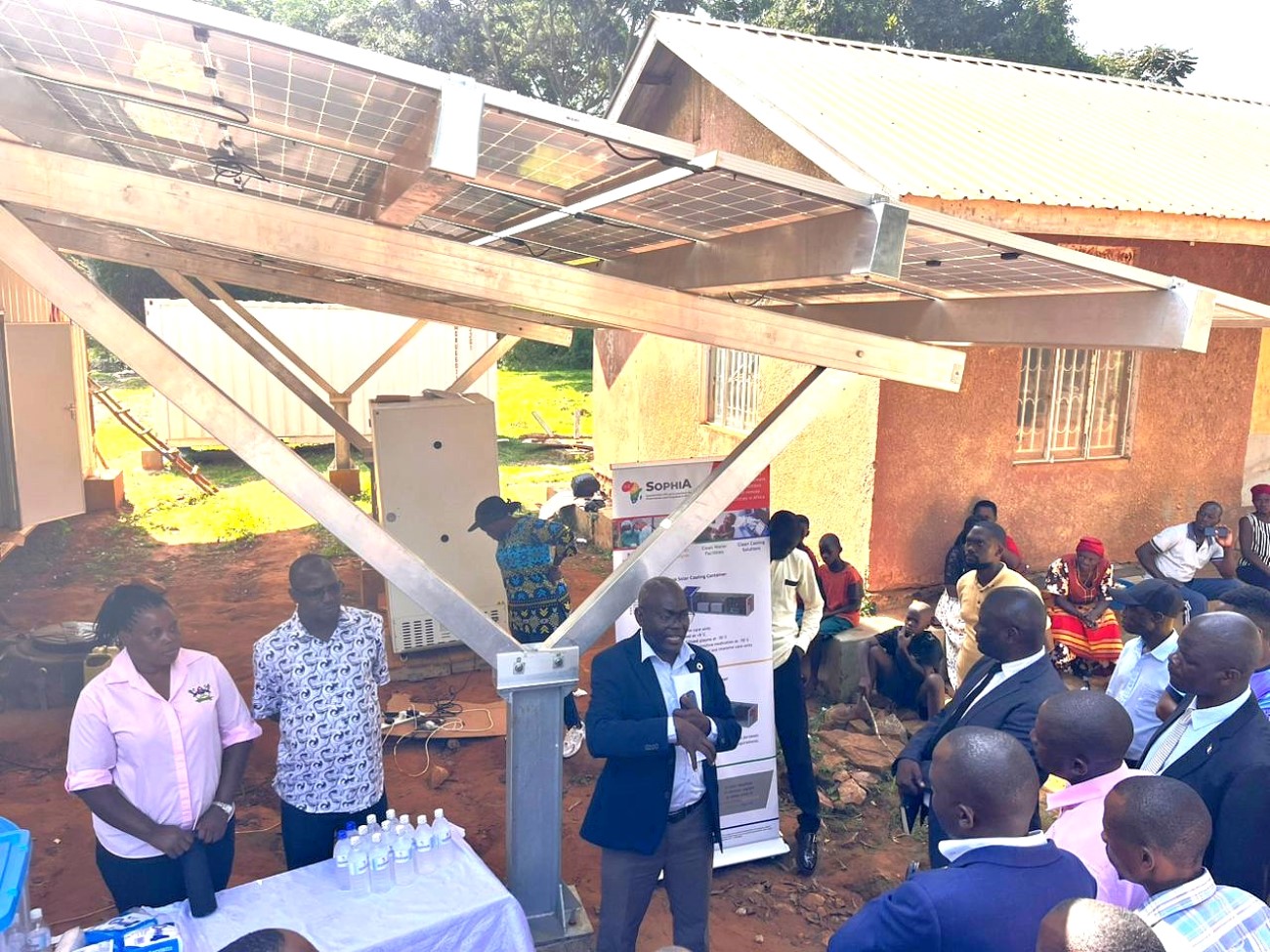
Day Three: Refrigeration and Cold Storage
The third day of the SophiA workshop focused on sustainable refrigeration and cold storage technologies tailored for healthcare in Sub-Saharan Africa. Experts discussed energy-efficient, climate-friendly cooling solutions vital for vaccine storage, medicines, and diagnostics, especially in off-grid and rural settings.
Key highlights included the introduction of solar-powered and biomass-based refrigeration systems, thermal energy storage methods, and the use of natural refrigerants like propane, ammonia, and CO₂ as environmentally safer alternatives. Presentations emphasized the critical role of refrigeration in healthcare and the urgent need to replace harmful chemicals with sustainable technologies.
Sessions covered real-world applications such as the SophiA cooling containers in Burkina Faso, safety protocols for flammable refrigerants, and the environmental and economic benefits of solar refrigeration systems assessed through life cycle analysis.
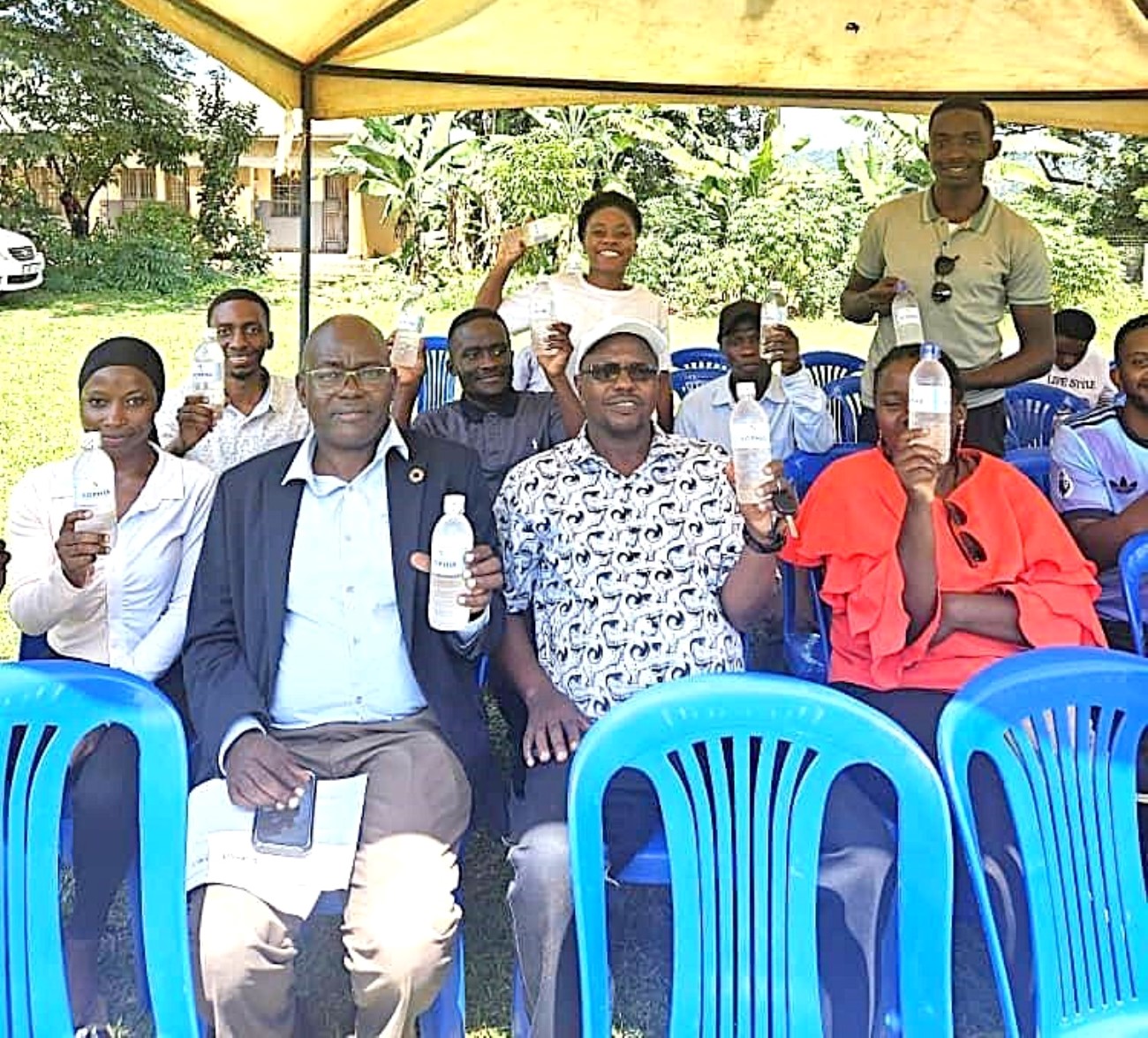
The day ended with an interactive quiz and discussion, reinforcing learning and encouraging participants to apply sustainable cooling practices in their communities.
Day Four: World Refrigeration Day & Field Visit to Buvuma Island
The fourth day of the SophiA Train the Trainers workshop was dedicated to the celebration of the World Refrigeration Day and a field excursion to Buvuma Island, providing participants with a unique opportunity to witness the SophiA system in action. The day was coordinated by Dr. Sarah Bimbona and Dr. Nicholas Kiggundu, who led the delegation to Buvuma Health Centre IV, the pilot site for the SophiA installation in Uganda.
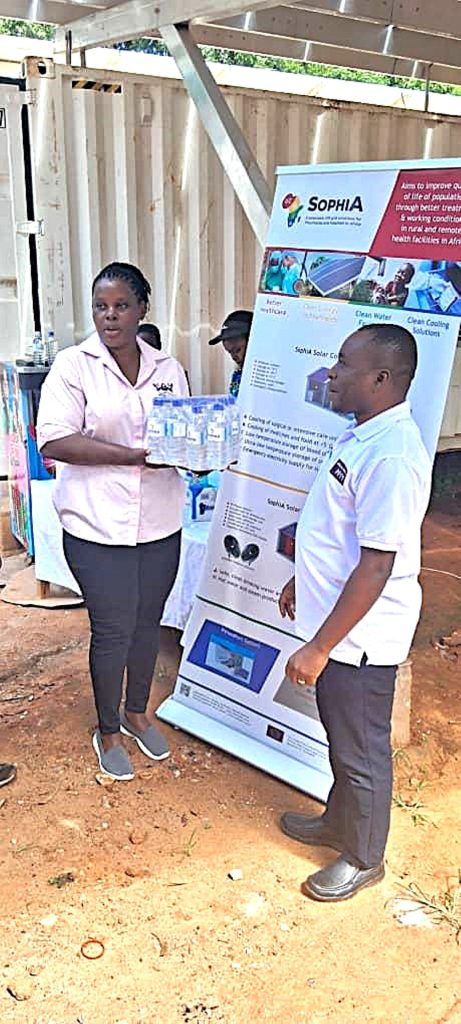
The visit served as both a practical extension of the previous day’s technical sessions and a community engagement event. Participants were able to observe the installed SophiA system, which integrates solar-powered refrigeration, water treatment and steam generation technologies designed for off-grid healthcare settings. During the visit, Dr. Kiggundu provided a detailed briefing to local stakeholders, including representatives from the Buvuma District Local Government, delegates from the Buganda Kingdom, and members of the local community. He explained how the SophiA system will enhance healthcare delivery on the island through reliable cold storage for vaccines and medicines, access to clean drinking water, and steam generated for cooking and use in the maternity wards.
As part of the long-term sustainability plan for the SophiA system, the launch of SophiA Water was announced, an entrepreneurial initiative designed to generate revenue locally for the operation and maintenance of the system.
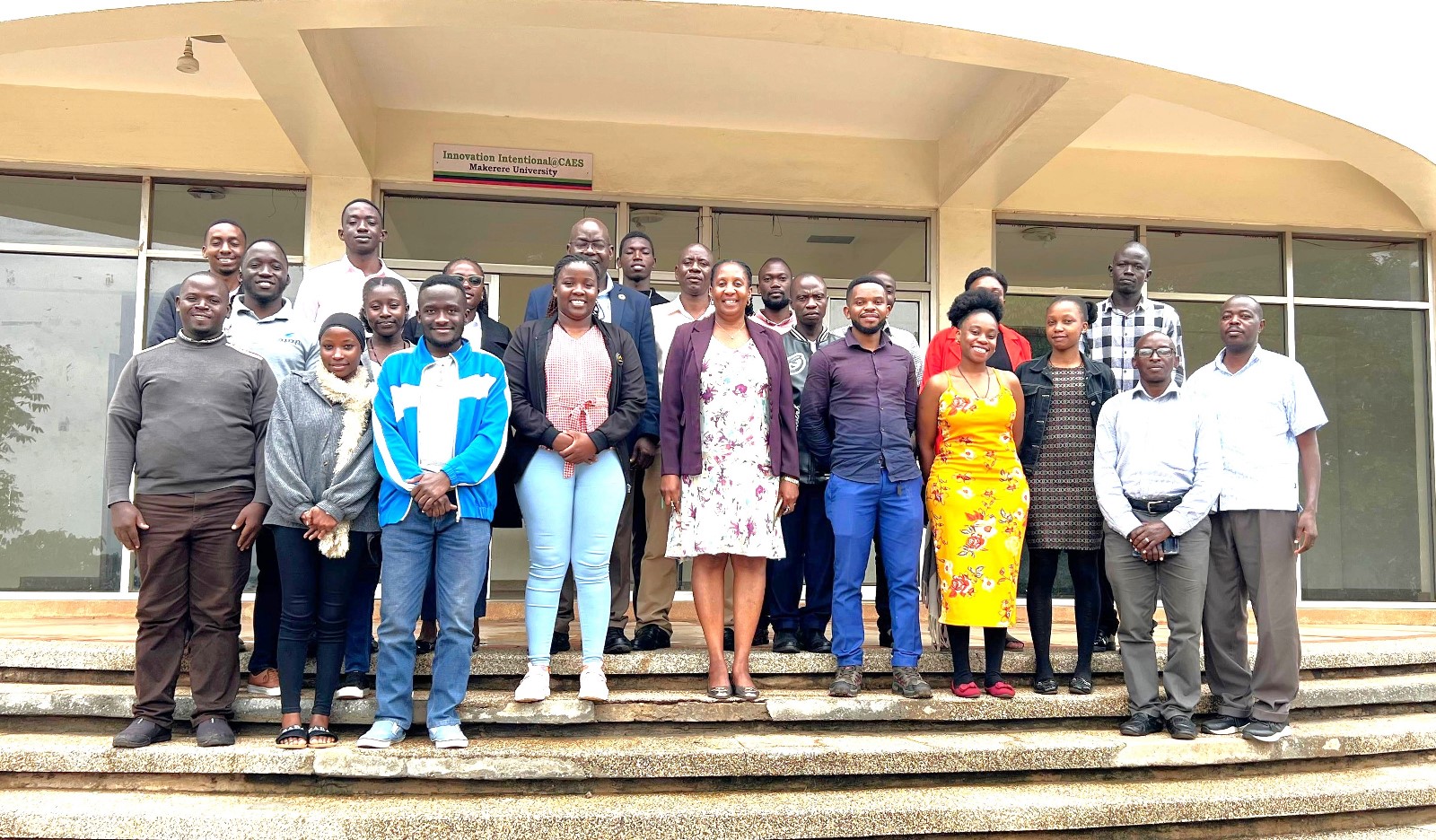
The field trip ended with a certificate awarding ceremony in appreciation of the participants’ dedication and active engagement throughout the training programme.
Agriculture & Environment
APRC Trains Graduate Students & Stakeholders in the Use of the African Agriculture Adaptation Atlas
Published
2 weeks agoon
July 3, 2025
The Agricultural Policy Research Centre (APRC), housed within the College of Agricultural and Environmental Sciences (CAES) at Makerere University, continues to play a pivotal role in shaping Uganda’s agricultural future through evidence-based policymaking. With a mission to ensure that agricultural policies are grounded in empirical research and data, APRC is actively investing in capacity-building initiatives that empower researchers, policymakers, and development actors.
In a significant stride toward building climate resilience in African agriculture, APRC recently organized a two-day intensive training workshop focused on the African Agriculture Adaptation Atlas (AAAA) – a state-of-the-art, web-based decision-support platform that facilitates the integration of climate data into agricultural planning and policy.

The workshop, held on Wednesday 25th and Thursday 26th June 2025 at the School of Agricultural Sciences, Makerere University, targeted two key groups: graduate students on the first day, and university faculty, government officials, and development practitioners on the second. This structure ensured tailored learning experiences for both emerging and seasoned professionals, helping to bridge the gap between academic research and real-world policy implementation.
The African Agriculture Adaptation Atlas (AAAA) is designed to provide dynamic, data-rich visualizations that support informed decision-making in agriculture and food systems across the continent. Through interactive maps and analytical tools, users can explore projected climate impacts, evaluate risks, and identify localized, climate-smart adaptation strategies.

Throughout the sessions, participants received hands-on training in a broad range of AAAA functionalities, including:
- Leveraging the Atlas for research and policy communication: Enhancing the ability of scientists and policy actors to translate complex climate data into actionable insights;
- Assessing projected climate impacts and associated agricultural risks: Essential for forward-looking planning and risk mitigation;
- Identifying climate-smart investment options, with a particular focus on the livestock sector, which is especially vulnerable to climate shocks;
- Analysing gendered vulnerabilities: Examining how climate change disproportionately affects women in agricultural communities;
- Understanding the implications of heat stress on agricultural productivity: Supporting targeted interventions to protect producers and their livelihoods;
- Estimating the economic returns of adaptation strategies: Aiding in prioritizing investments and allocating limited resources effectively.

Prof. Bernard Bashaasha, the APRC Coordinator, emphasized the importance of the training in advancing Africa’s adaptation agenda. “As climate change continues to threaten food security and disrupt livelihoods across the continent, tools like the AAAA, and the skills to use them effectively are essential. They empower decision-makers to craft policies that are adaptive, inclusive, and rooted in science,” he noted.
The workshop was coordinated by Dr. Florence Rwiza, Lecturer in the Department of Agribusiness and Natural Resource Economics at CAES.
More photos from the Training






Trending
-

 Education2 weeks ago
Education2 weeks agoAdmission List to Bachelor of Education External (BED) 2025/26 -Private Sponsorship
-

 General1 week ago
General1 week agoRe-advert: Admission to Undergraduate Programmes 2025/2026
-
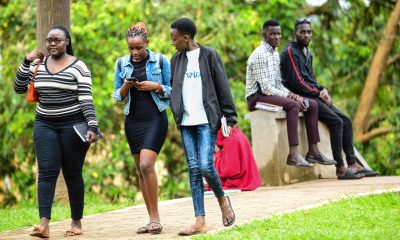
 General2 weeks ago
General2 weeks agoAdmission Lists -Disability and District Quota Schemes 2025/26
-
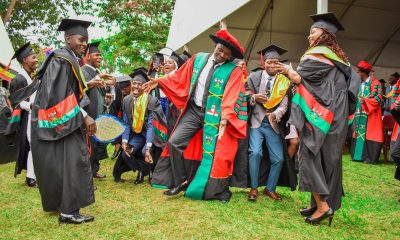
 General2 weeks ago
General2 weeks agoDiploma/Degree Holders Scheme – Self Sponsorship Admission Lists 2025/26
-

 General6 days ago
General6 days agoRe-Advert for Applications for Diploma and Certificate Training
